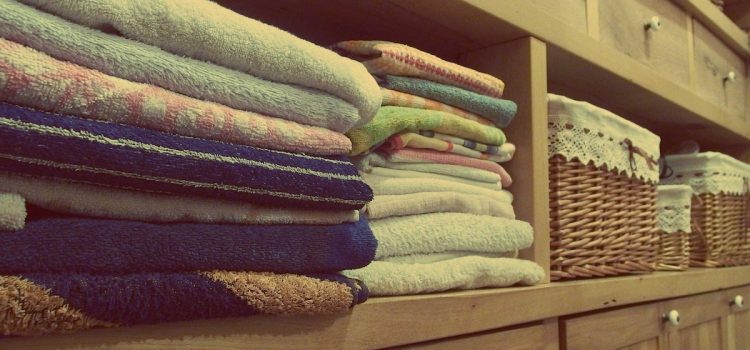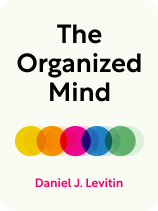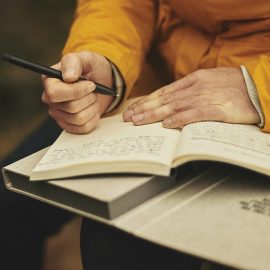

This article is an excerpt from the Shortform book guide to "The Organized Mind" by Daniel J. Levitin. Shortform has the world's best summaries and analyses of books you should be reading.
Like this article? Sign up for a free trial here.
How does your brain keep track of your stuff? How can you work with your biology to better organize your things?
In his book The Organized Mind, neuroscientist Daniel J. Levitin discusses how to externalize and sort information to make various mental processes easier. Similarly, he suggests that you use the power of externalization and sorting to track your stuff.
Keep reading to learn how to organize your home in a way that frees up more mental energy, allowing you to focus on other tasks and make better decisions.
How to Organize Your Home
Levitin suggests that, when thinking about how to organize your home (and other physical spaces), there’s a neurological trait—in addition to your brain’s tendency to sort—that you should keep in mind: You are great at remembering where things are. This is because you have an entire brain region devoted to doing so: your hippocampus, which evolved to remember where important things (like the nearest source of fresh water) were in a pre-map era.
(Shortform note: In Moonwalking with Einstein, Joshua Foer argues that your brain is also good at remembering images due to ancient evolutionary needs: Back when our memory evolved, the most important things to remember were the routes between food and home (which your hippocampus takes care of) and which vegetation was edible (which depended on your ability to remember what it looked like). So if you need to remember an abstract concept, you should turn it into a creative image—ideally something you’ve never seen before since you’re less likely to remember a specific instance of something you’ve already seen. For example, if you need to remember to charge your phone, imagine your phone and charger having a silly conversation.)
So, how can you work with your biology to organize your physical objects? Levitin names two strategies.
1) Designate a place for everything. Thanks to your fantastic spatial memory, you’re more likely to lose things that move rather than things that don’t; for example, you likely often lose your phone but never the clock on your bedside table. When designating these spaces, take advantage of categories: You don’t need to know where every fork you own is as long as you know where all the silverware is. And if you own things that move regularly, either buy duplicates (if that’s feasible) or assign them a place to live. For example, if you regularly carry your laptop around your house, always return it to your desk when you stop using it.
(Shortform note: Designating a place for everything is particularly important if you have ADHD, as you may be especially prone to putting down items without paying attention—which makes you more likely to lose them. Experts recommend establishing a habit of walking through your home each evening to pick up stray items and return them to where they officially live. You might also consider using gadgets to keep track of things that move regularly; for example, if you put a Tile on your keys, you can make it ring using an app to help you find your keys if you lose them.)
If you have no idea where to put something, or you’re just not sure where it goes yet, Levitin suggests having a junk drawer or a miscellaneous file. You’ll inevitably encounter things you don’t know what to do with and that don’t warrant a single place; for example, you probably don’t want to designate an entire drawer just for matches. Placing these items in a junk drawer will save you time and energy as you build your organized system.
(Shortform note: Remember that your junk drawer still needs to be somewhat organized. It should be a last resort for small items you’re not sure what to do with, not a chaotic mess of trash (like old take-out menus) and things that actually belong somewhere else (like pens). Organization experts recommend purchasing drawer dividers so that you can easily see what’s in your junk drawer.)
2) Adjust the environment so that it reminds you what to do. This can be built into the organization system you select; for example, you might purchase a silverware organizer that’s labeled with a picture on each slot that denotes which utensils go there.
Alternatively, you can temporarily change the environment based on your needs—which will help you remember where something is because your attentional filter will pick up on it. For example, if you want to remember to send a letter, put it in front of the coffeemaker so that you’ll see it in the morning. However, remember that this works only because it’s unusual; if your mail usually lives by the coffeemaker, or if you forget to take the mail out and leave it there for a week, you’ll stop noticing it because your attentional filter will get used to it and thus ignore it.
(Shortform note: Changing the environment so that it reminds you what to do is a type of “signifier.” In The Design of Everyday Things, Don Norman explains that a signifier is a product feature that advertises how to use a product—like the “push” sign on a door. If you don’t want to change the environment, you can also use technology to remind you what to do, and your attentional filter will pick up on the notification. For example, if you keep forgetting to send the letter in your car, you might set a location-based reminder so your phone reminds you to send the letter the next time you’re near the post office.)

———End of Preview———
Like what you just read? Read the rest of the world's best book summary and analysis of Daniel J. Levitin's "The Organized Mind" at Shortform.
Here's what you'll find in our full The Organized Mind summary:
- The key to living less stressfully in the modern world
- Why our current approach to dealing with stress doesn’t work
- Strategies for sorting and externalizing your thoughts, things, and relationships






